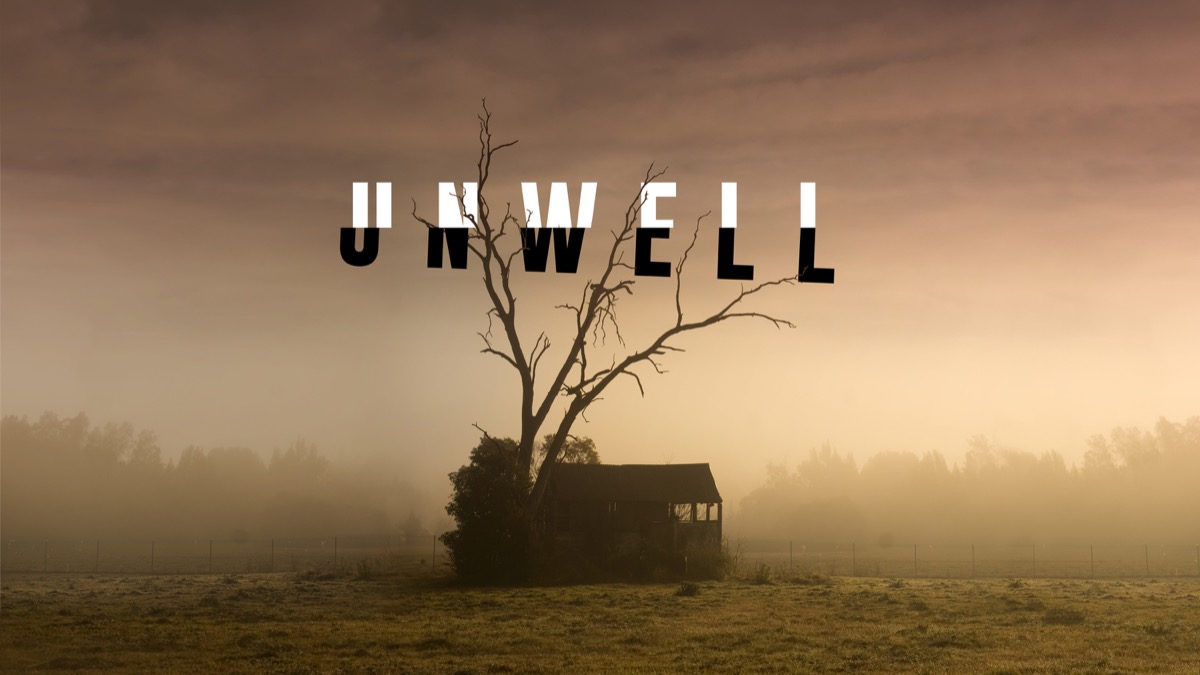Unwell: A Midwestern Gothic Mystery Balances Ghosts and Human Horrors


Stories about the Midwest are extremely hit-or-miss. Many conservative narratives rely on painting a hallowed image of small-town middle America as the mythical Heartland to which a Rorschach of “traditional American values” can be applied. The other extreme flattens midwestern states into a formless blob, at best unworthy of comment and devoid of culture, and at worst a roundup of bigoted stereotypes.
Unwell: A Midwestern Gothic Mystery has set its sights on finding the middle ground between those extremes. It comes with the benefit of an experienced crew: Chicago-based Hartlife NFP previously created Our Fair City, a post-apocalyptic dark comedy that started way back in 2011. Eight seasons of production have left them extremely seasoned in the podcast game, and in my experience, the team is both committed to progressive storytelling and extremely receptive to constructive critique.
That experience and care shows in the first three episodes of Unwell, which are premiering from February 20 through 22. (From there, the series will assume a biweekly schedule, with a break halfway through its twelve-episode season). The show begins with Lily Harper returning to the town of Mt. Absalom to take care of her estranged and sickly mother. Illness infests the story, from the town’s history to Lily’s deep-seated but unexplained fears, as much a threat as any ghost.
That’s just as well, as any gothic story worth its salt only really uses its ghosts to point toward issues poisoning the living. After an intense opening scene, the series takes a step back to establish character dynamics with copious foreshadowing threaded throughout. Some characters establish themselves more quickly than others—visiting scientist Abbie initially comes across as more quirk than person, not quite coming into their own until the climax of episode three—but all are well-acted with plenty of potential to be explored.
It helps that both the characters and the crew are filled with diverse voices. Several of the main cast are voiced by actors of color, and multiple members of the production team are trans. While the show has already tangled with heavy topics like convenient colonialist myth-making, it also remembers that there marginalized folks living out their lives in small towns.
I certainly found it a welcome change of pace from the “hit eighteen and run for the coasts” expectation that often defines gay narratives, ignoring the multitude of factors (financial and social) that can keep queer folks attached to where they grew up—and the complicated feelings that can arise when someone leaves and comes back. Its eye is critical, but it’s also somewhat fond, with an eye for familiar details like the sound of a half-enthused, half-heckling crowd that all came out to see the local kids do theater.
The world of audio drama has its fair share of eerie horror-tinged stories thanks to the influence of a certain friendly desert community, but Unwell distinguishes itself by virtue of its high production value, sense of authenticity, and stellar cast and crew. Whispering voices threaten to drown the reader as surely as the characters, effective silences paint the image of long stretches of empty road, and the scripts mete out just enough intrigue to keep the story from feeling as though it’s stalled. Listeners who want to check for any triggers ahead of time can also access content warnings and transcripts for each episode.
While it’s unclear where exactly the story’s ambitions will take it, it’s off to an exceptionally strong start. Fans of Lore, The Black Tapes and, yes, Night Vale will find themselves right at home here.
(image: Hartlife NFP)
Vrai is a queer author and pop culture blogger; they’ve fully embraced their lifetime role as a lover of trash. You can read more essays and find out about their fiction at Fashionable Tinfoil Accessories, listen to them podcasting on Soundcloud, support their work via Patreon or PayPal, or remind them of the existence of Tweets.
Want more stories like this? Become a subscriber and support the site!
—The Mary Sue has a strict comment policy that forbids, but is not limited to, personal insults toward anyone, hate speech, and trolling.—
Have a tip we should know? [email protected]